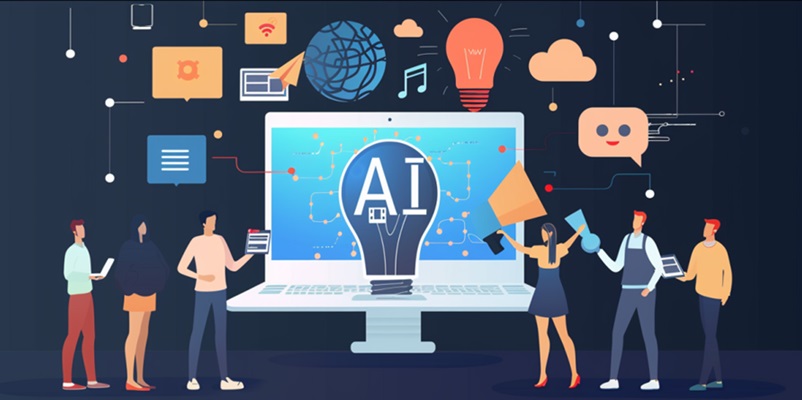As companies strive for dominance in the digital marketing realm, the integration of Artificial Intelligence (AI) within marketing technologies marks a critical evolution. This fusion brings forth new growth opportunities and is rapidly reshaping how enterprises communicate with their audiences. Understanding the array of complex options is essential to effectively leverage AI’s rise in the marketing sector.
AI’s role in marketing is underscored by the introduction of advanced capabilities such as machine learning, natural language processing, and predictive analytics. These technologies provide a significant boost to customer insights, facilitating better demand generation, personalization, and management of customer journeys. AI enables businesses to anticipate customer requirements, tailor communications uniquely, and fine-tune interactions using the power of instantaneous analytics. The adoption of AI within MarTech tools is becoming indispensable for any business looking to gain a competitive edge and engage with their customers on a deeper level.
Illuminating the AI and MarTech Synergy
The convergence of AI and Marketing Technology unveils new prospects in customer interaction and campaign optimization. Marketers now have the power to process and analyze vast volumes of data to extract valuable insights that can shape highly targeted campaigns and influence product enhancements. Predictive analytics allow for the forecasting of consumer behavior with increased accuracy, giving marketers the ability to devise strategies that have a more profound impact on their targeted demographics. Real-time personalization becomes seamless, as AI intuitively adjusts to changing customer profiles and tastes, crafting a personalized and responsive marketing experience.
The implementation of AI-fueled chatbots and voice assistants has transformed brand interactions with immediacy and relevance, setting a new benchmark in customer service and engagement. These innovations eradicate the frustrations of delays or impersonal responses. Natural Language Processing and sentiment analysis are fundamental in this transformation, as they equip machines with the capacity to interpret and respond to human language with striking accuracy, paving the way for more fluid and effective dialogue.
The Framework of AI Application in MarTech
AI is recasting the MarTech landscape, moving beyond traditional demographic-based targeting towards an intricate comprehension of individual customer journeys. This shift enhances customer segmentation and analytics, allowing marketers to identify not just who their customers are, but where they are in the buying cycle, revealing opportunities for upselling and economizing resources. AI’s contribution to content creation ensures that marketing communications are deeply resonant with the audience by continuously evaluating and tuning messages based on performance data. The predictive capabilities of AI furnish marketers with the prescience to spot upcoming trends, staying a stride ahead of the competition.
To fully exploit the potential of AI within MarTech, companies need to undergo a strategic transformation. This transformation is not only about adopting AI tools but also about integrating them seamlessly with current marketing frameworks. It represents an evolutionary leap in marketing strategies—one where AI becomes an essential partner in achieving business objectives.

